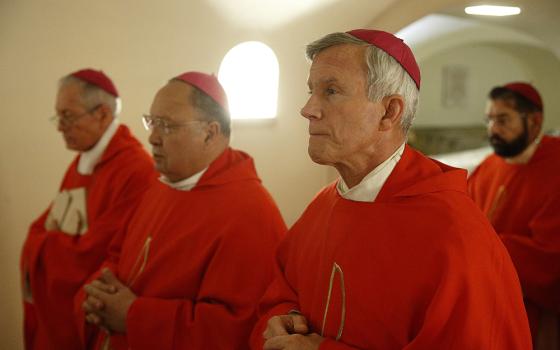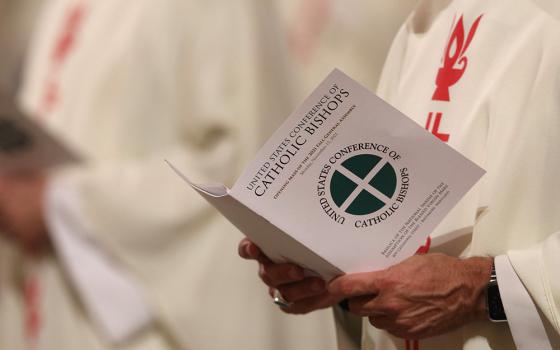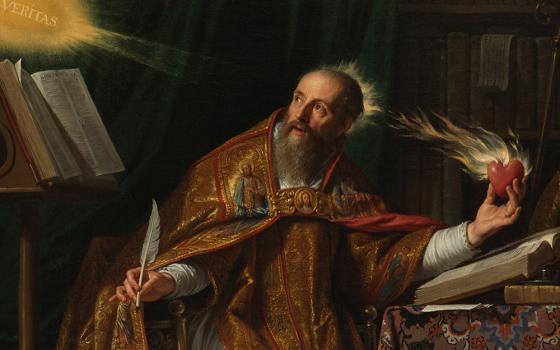For the NCR culture section, theologian Amirah Orozco wrote about what the Catholic Church can learn from Taylor Swift. Following are NCR reader responses to this essay with letters that have been edited for length and clarity.
As I gazed, somewhat askance, at the Taylor Swift feature, I weighed whether I would venture into the piece. I am, after all, an old curmudgeon who stopped listening to most pop music post-1970 (except for dancing!), mainly because I often could not decipher the lyrics within the din. I retreated into my classical background and reveled simply on the glorious divine sounds of the Baroque, Romantic and Impressionistic periods. It seems I must try harder within my octogenarian self to explore these new lyrics, in several cases revealing the deepest longings of the human heart, the phenomenon of life itself, in a serious way, rather than dismissing them as I often do as trivia! Author Amirah Orozco has assisted me to discover divine connections in pop-music's human-drenched occurrence. I should know better, as I have watched young preachers using these more contemporary experiences to connect with peer-listeners. Even 'old dogs' can learn new lyrics!
(REV) PIKE THOMAS
New Roads, Louisiana

***
I was surprised Orozco's article on Taylor Swift's particularity omitted obvious pain points between Swift fans and the Catholic Church, especially given that her article was published in June. She acknowledges that Swift is more popular among the majority of young people than the church is and notes that it's because Swift is vulnerable and confident in her individuality — whereas the church "pits universal principles against the unique problems in the lives of young people." Orozco skims the surface but misses the point: Catholicism does not pit itself against anyone, members of the church do. In trying to offer the Truth as a solution to the problems of a young generation, we forget that how we offer something is as important as what we offer. Catholics know the church offers most of what Taylor offers: community, comradery, beautiful music. But Taylor also offers what the church cannot: acceptance and encouragement of particular actions, the affirmation of relativism. But as Orozco reminds us, Swift knows that being vulnerable about her individual experiences can make her audience of strangers feel seen, much like the way people in Gospels left their families, towns and work to follow a stranger because he was willing to see past the surface and into their hearts. Catholicism does not pit itself against the wayward, but should offer the Gospel to the wayward through the work of Christian evangelization. Orozco tells us with a wink that the church could stand a genre-shift. I think we should borrow Swift's PR team.
ANNA BOEHK
Annapolis, Maryland
Advertisement
***
I'm a great fan of Taylor Swift the artist and Taylor Swift the red carpet icon, but I take a rather dim view of Taylor Swift the public figure more generally. I'm never quite sure what to make of attempts to relate the work of popular secular artists like Swift to faith and theology. When the Beyoncé Mass debuted some years back I was a bit disturbed. I'm very much a Beyoncé fan (not a Beyoncé devotee and therefore in no way a member of the BeyHive), but I found the idea that Christians should be encouraged to receive the work of an aggressive wealth hoarder as theology in a church to be sacrilegious. Swift is herself a wealth hoarder, as are most highly successful artists and other celebrities. It's bad enough that many of our supposed teachers in the Catholic Church are wealth hoarding hypocrites, but now we're supposed to learn from wealth hoarders outside of the church too? It's obvious that many people, me included, are deeply impacted by the work of wealthy artists like Swift. Maybe Amirah Orozco is right and we Catholics do have something to learn from Taylor Swift the artist? I think most Catholics can agree that it does behoove us to engage the arts and popular culture as Catholics. If an artist or a song, album, film, book, etc. is popular, surely that tells us something. Those are signs of the times that can't be ignored.
JEFFREY JONES
Hamburg, New York







